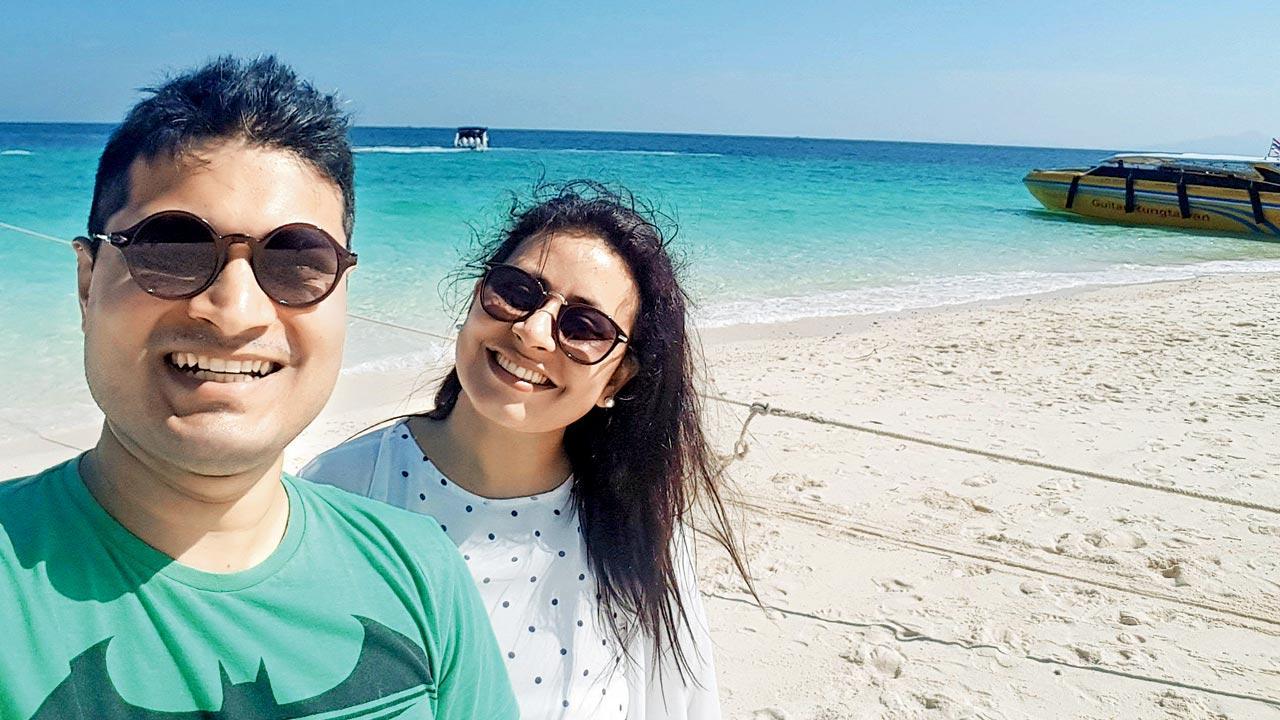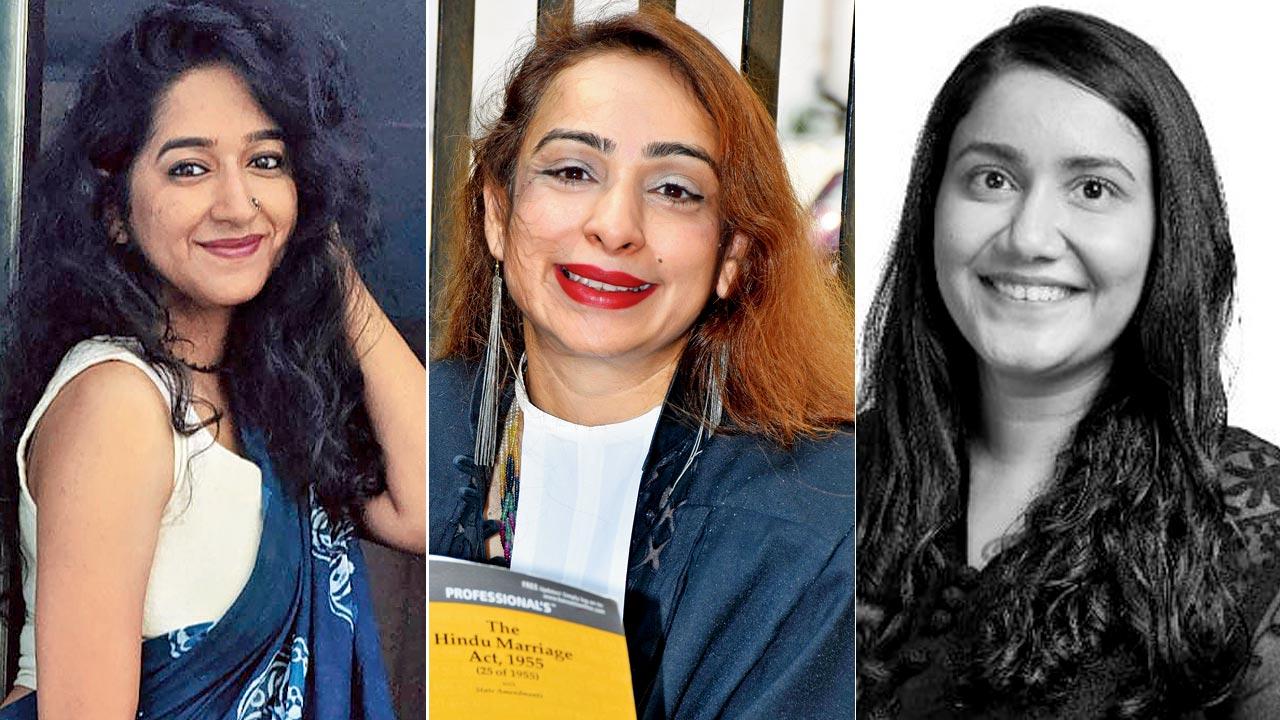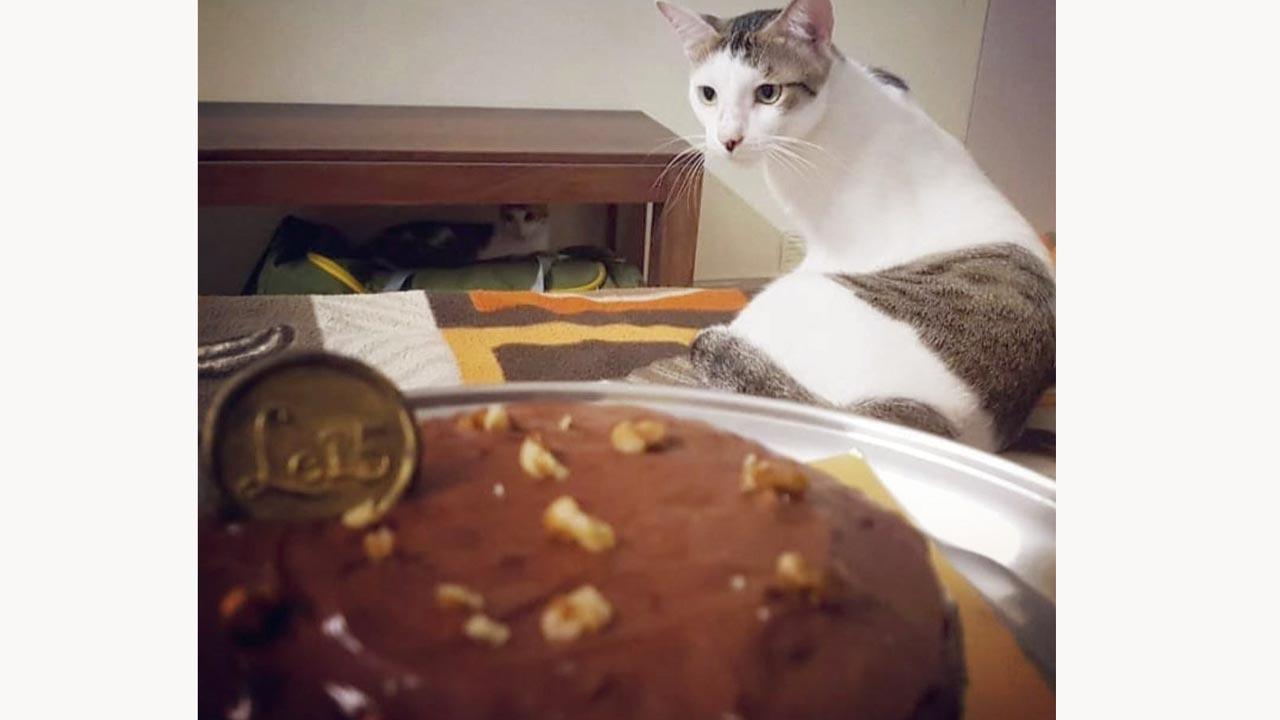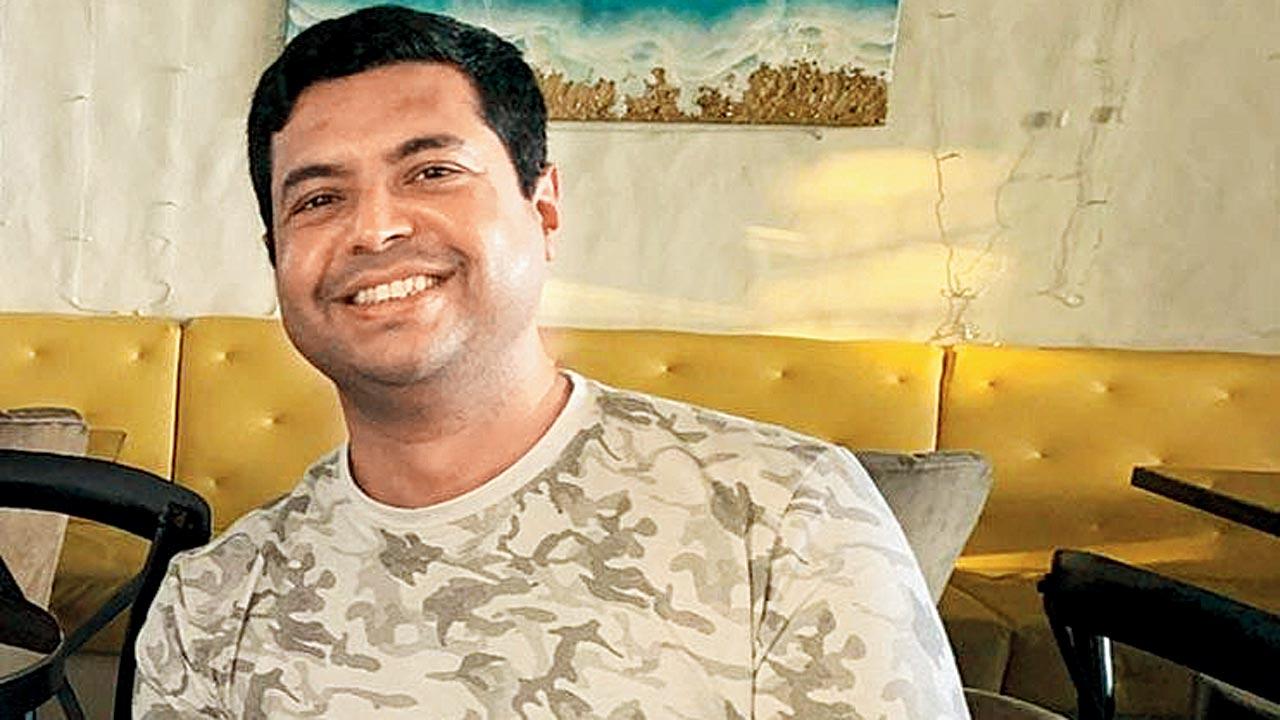After apex court backs not-fault divorce’, mid-day gets former spouses to share how they separated with love

Kartik Vermani and Rahul Nanavare separated in December 2018. They took a trip to Krabi the following year to celebrate Vermani’s birthday
Last month, the Supreme Court backed the need for a provision of no-fault divorces. Noting that some marriages end due to irreconcilable differences, the court observed that under the Hindu Marriage Act, divorce is based on “fault theory”.
ADVERTISEMENT
“This will really change the landscape,” says Shasvathi Siva, a writer and marketing professional who runs a support group for people terminating their marriage. “Why does something have to go wrong [for a marriage to end]? Divorce can also be an option because the relationship worked once, but not anymore.”
The bench’s observation reflects the amicability seen between many former partners.
 Shasvathi Siva, Vandana Shah and Sarah Kapadia
Shasvathi Siva, Vandana Shah and Sarah Kapadia
“There is definitely a shift in mindset,” says Sarah Kapadia, partner at South Mumbai-based law firm Vesta Legal, adding that this mutual acceptance is a strong foundation for co-parenting.
Divorce lawyer Vandana Shah says the legal process can help nurture this mutual respect rather than corrode it. “The subject of contention is usually custody of children and alimony. This should be discussed and agreed upon in the first meeting with the counsellor. Once this is done, it’s an easier ride for everyone involved.”
 Four years ago, the exes adopted a pair of cats, who they co-parent
Four years ago, the exes adopted a pair of cats, who they co-parent
‘We chose to not exaggerate and make it more difficult’
Kartik Vermani, 37, who hails from Paonta Sahib, an industrial town in Himachal Pradesh, and Mumbai-based Rahul Nanavare, 36, met at their work place; in their case, a hotel, in 2010 and fell in love. Vermani worked in the front office and Nanavare in food
and beverage.
“Our working hours were very different,” says Vermani.
Two years later, the couple got married and moved to Amritsar. “Our professions were demanding, and we were both ambitious,” she says, “After Amritsar, we both moved to Bangalore. Then he got a job in Chennai, and I in Hyderabad. While we supported each other’s ambitions, we weren’t spending much time together. So, I moved to Chennai for a job that wasn’t at par with my experience. It made me unhappy. And, while I am very expressive, Rahul isn’t.” Vermani now works at the Holiday Inn in Agra.
The couple then moved to Nanavare’s native place, Mumbai, and that was the final nail in the coffin. “It was difficult for me to travel by local [trains], and the job demanded travel,” Vermani continues, “I had changed departments and there weren’t many job offers. I took a break from work and that hit my confidence. I was no longer the person I used to be.”
Vermani began seeing a therapist, and when a position opened in Chandigarh in December 2018, she decided to take it up. The couple separated.
“But for the sake of our families and society,” she says, “we would attend family events together and put up a show on social media as well. He even travelled all the way to Himachal Pradesh to attend a wedding on my side of the family.” They both decided not to exaggerate their separation and “make it difficult for each other”.
“There were differences and arguments, perhaps many of them, but no deep-rooted hatred,” says Nanavare, who continued working in Bombay and is currently a general manager at The Bombay Canteen. “We separated by December 2018, but due to the distance and pandemic, were granted divorce in January this year. The time apart gave us many insights,” he says, adding that they both carried childhood baggage.
“We used the time apart to iron out our differences. Kartik was in therapy, and she would share her insights and it would also help us understand the situation better.”
Today, the former spouses celebrate all the major milestones in each other’s lives, and have meals together when they are in the same city. “We took a trip to Krabi in November 2019 to celebrate my birthday,” shares Vermani. “It was like taking a trip with a friend,” adds Nanavare.
Their cats—Millie and Julie—bind them too. “While he is happy to keep them, he has asked if I wanted to move them in with me,” says Vermani, who flew down to Mumbai in August to celebrate their fourth birthday. “He still comes to pick me up from and drop me to the airport, orders food for me when I am there and offers his home to stay. When I’m back in Agra, he sends pictures and videos of the cats frequently.”
In the new chapter in her life, Vermani, though no longer married to a Maharashtrian, still celebrates Ganesh chaturthi. “He would celebrate it every year and I began to also,” she says. “I was so fascinated by this tradition that I got it organised in the hotel I work at. I am grateful I made it happen and I wish to continue the tradition.”

‘It was therapy that helped us’
After being married for five years, Mumbai-based writer-journalist Mihir Patkar, 37, and baker and copy-editor Gayatri Sarang, 40, separated in 2016 and divorced a year later. “We both began growing in different directions without realising it,” says Patkar. “There came a point when we realised we were very different people from when we started dating.”
“There was no one particular moment when this dawned upon us,” says Sarang. “We were stuck in a rut. Mihir and I had a love marriage, but we came to a point where we weren’t spending enough time together, and realised that we would be happier if we separated.” Patkar agrees, adding, “We were living under the same roof, and doing things together but it wasn’t coming from a place of joy. It was routine.”
The pair went for counselling, which they agree, contributed to the peaceful divorce. “There is an image in your head of how your marriage should be,” says Patkar, “and if reality does not match that image, you begin wondering if it is your fault or the other’s. We were also finding it difficult to tell each other how we felt. Seeing a therapist helped us realise that it was no one’s fault. It helped us see our true self, and empathise with what we both were going through. We are two nice people, we were not mean to each other and perhaps that’s why we’re still friends.” The other thing they did right, according to Sarang is that they “didn’t wait for things to get ugly. We didn’t play dirty games, making it difficult for each other.”
They share a warm relationship with not just each other, but their families too. “There is no animosity,” says Sarang, “which is perhaps because we both decided that we would talk to our respective families and make them understand so that there is no emotional blackmailing from either side.” Sarang recently re-married and lives in Pune.
Their divorce was ‘faultless’ but Sarang admits that it wasn’t a bed of roses either. “We [Indians] are raised to believe marriages are sacrosanct. Just because it [divorce] was amicable, it wasn’t easy.”
 Subscribe today by clicking the link and stay updated with the latest news!" Click here!
Subscribe today by clicking the link and stay updated with the latest news!" Click here!







